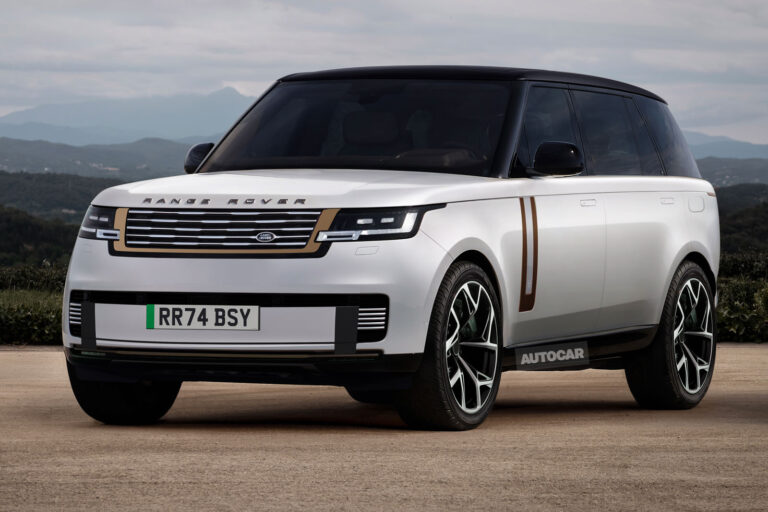The firm says its test programme has been adapted to particularly examine the vehicle’s underfloor, battery durability and thermal derating.
The Range Rover Electric will be built in Solihull alongside the existing mild- and plug-in hybrid versions. It will initially use batteries from a third-party supplier before eventually switching to packs produced in the new Somerset gigafactory that JLR parent firm Tata is planning.
Batteries and electric drive units for the new model will be assembled at JLR’s new electric propulsion manufacturing centre in Wolverhampton.
Evolution of the electric RR
The electric Range Rover, which will serve as a rival to the BMW iX and Mercedes-Benz EQS SUV, remains under wraps (even camouflaged prototypes have yet to hit public roads), but visually it’s unlikely to differ substantially from the ICE-powered car.
The subtle evolution of the Range Rover’s design over the years suggests its recognisable silhouette is intrinsic to the model name, so it’s likely to be maintained for all powertrain variants.
Originally, it was planned that Land Rover’s first EV would share the MLA underpinnings with the long-promised electric Jaguar XJ, but that model was cancelled as it was deemed incompatible with then CEO Thierry Bolloré’s vision for the brand.


